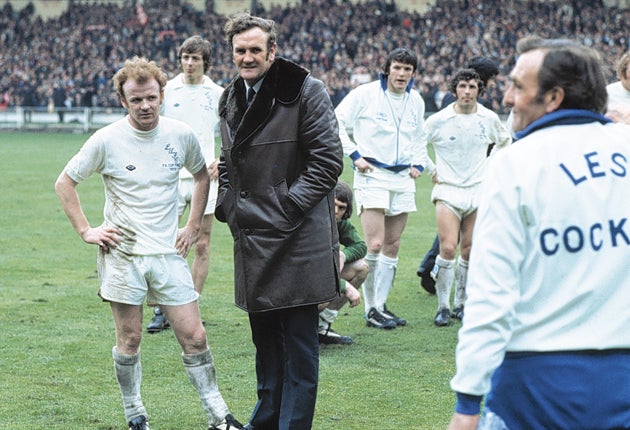Leeds v Manchester United: a story of conflict and contempt
From the War of the Roses to the capture of Cantona, Jack Pitt-Brooke reports on a bitter rivalry

One of English football's fiercest rivalries resumes this evening as Leeds United host Manchester United in the Carling Cup. This is one of the great sustaining fixtures. Across the Pennines flows regional antipathy, rooted in the Wars of the Roses and the Industrial Revolution, finding its recent form in football; a series of brutal semi-finals, exhausting title races, and the transfer of Eric Cantona in 1992, setting up two decades of Manchester domination.
It is a dynamic of distaste and envy, and one that does not even require regular meetings to maintain it. "As a kid, my dislike was principally theoretical and vicarious, as we never played them," recounts Daniel Harris, Manchester United fan and author of 'On The Road: A journey through a season' to The Independent. "But my dad would immediately recall the thuggery of Don Revie's team if ever they came up in conversation."
The antipathy is matched. "It's not the first result I look for but I do feel a lot happier if they've lost," says Anthony Clavane, author of 'Promised Land: A Northern Love Story'. "I try to dress this up as a meritocratic thing – we all want the Premier League to be more competitive – but I am sure, deep down, it is a tribal thing."
The two tribes have been warring for centuries. The House of York and Lancaster spent much of the 15th century in bloody conflict for the English throne. Competition for the crown was replaced by competition for commerce, and the cities were set against each other again. "The history which really affects the rivalry," explained Clavane, "is the industrial revolution. Their successful cotton industry ruined our traditional woollen industry because it was to cheaper to produce. Yorkshire weavers were undercut, and this was the beginning of Manchester's new wealth: King Cotton."
Centuries of rivalry and jealousy could only lead to antagonistic football clubs. This first exploded in the 1964-65 season, in which Manchester United pipped Leeds for the title on goal average. There was also an FA Cup semi-final, featuring a fight between Denis Law and Jack Charlton, "establishing the enmity that was to follow", according to Harris.
In the late 1960s and early 70s, Don Revie established Leeds as England's leading team, at the cost of Matt Busby's Manchester United. "Not only did they take over from us as the country's best side," Harris said, "but in many ways, were the antithesis of Busby's United, who, though no pushovers, understood the importance of sportsmanship and always played to entertain."
Clavane bristles: "Leeds fans, and anyone who saw the great team in their prime, know who was the more attractive team of the 1970s." After a quiet 1980s, with Leeds in the Second Division, the next definitive period was the early 1990s. In 1991-92, Howard Wilkinson's Leeds won the First Division title. In November 1992, Leeds sold French forward Eric Cantona to Old Trafford. Manchester United won their first title since 1967 and Leeds have not finished ahead of them since. "The excitement when he signed was quite something," remembers Harris. For Clavane, the memories are not quite so sweet. "Selling him to Fergie's mob was the worst transfer decision in history." After a damaging flirtation with success in the early 2000s, Leeds were relegated from the Premier League and are yet to return. Cups provide the only games between these teams now, but 2010's FA Cup tie at Old Trafford, which Leeds won, showed the contempt and spite is still there.
Daniel Harris was shortlisted for best new writer at the British Sports Book Awards for his book, On The Road: A journey through a season; Anthony Clavane's 'Promised Land: A Northern Love Story', was named Sports Book Of The Year by the National Sporting Club
Join our commenting forum
Join thought-provoking conversations, follow other Independent readers and see their replies
Comments
Bookmark popover
Removed from bookmarks